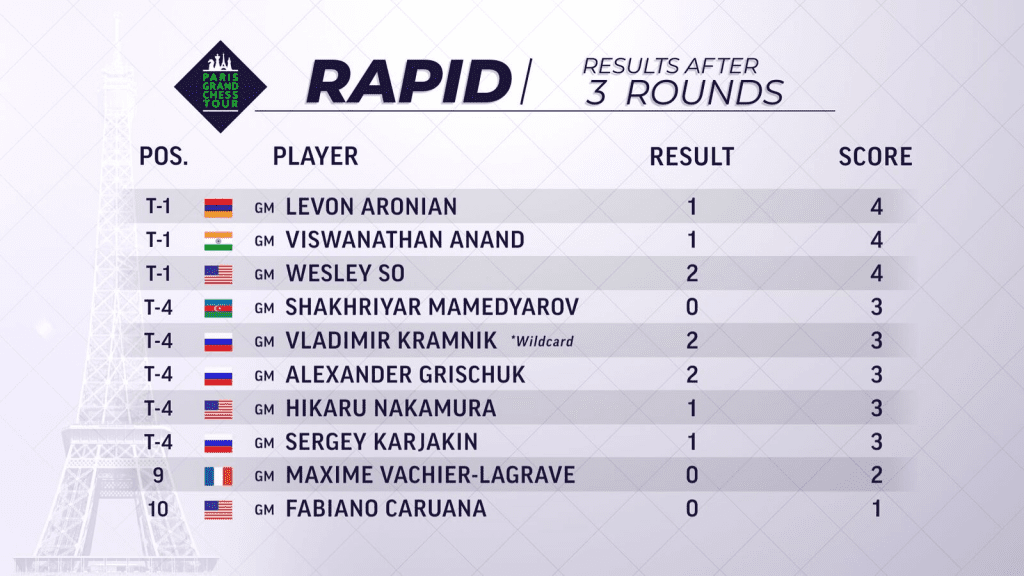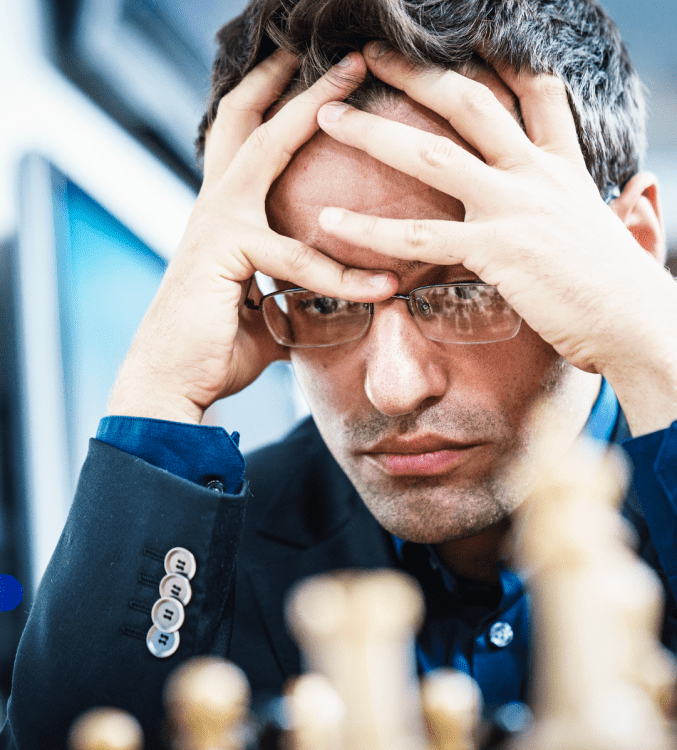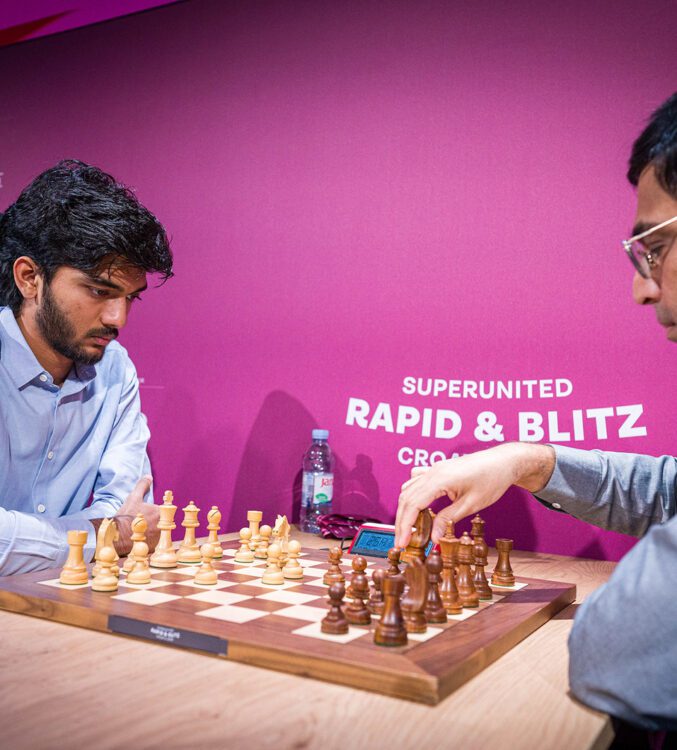
2018 Paris GCT Recap Day 1
Three days after the conclusion of Your Next move, the players continued on to Paris for the second leg of Grand Chess Tour. The wildcard for this event is former World Champion Vladimir Kramnik, who was also a wildcard in last year’s edition. After three rounds of rapid, Wesley So, Levon Aronian and Viswanathan Anand are tied for the lead with 4/6. Tomorrow promises to bring even more excitement as the leaders will be facing off against each other.
Round 1
The winner of the Your Next Move Wesley So took an early lead by defeating his countryman Fabiano Caruana, just as he did in Leuven. Levon Aronian kept pace with a win over Alexander Grischuk. Maxime Vachier-Lagrave had material advantage against Sergey Karjakin but was unable to convert with the black pieces. Vladimir Kramnik and Shakriyar Mamedyarov drew Hikaru Nakamura and Viswanathan Anand respectively.
Round 2
This round also saw two decisive results. After his first round win, Wesley So immediately stumbled and lost to Shakriyar Mamedyarov in an opposite color bishop endgame. In the match of former World Champions, Vladimir Kramnik’s blunder against Viswanathan Anand cost him a rook and consequently the game. World Championship contender Fabiano Caruana recovered from his first round loss with a solid draw with the black pieces against Maxime Vachier-Lagrave. The all-Russian match up of Alexander Grischuk and Sergey Karjakin was a quiet affair as was the one between Hikaru Nakamura and Levon Aronian.
Round 3
This was the bloodiest round of the day with three decisive games. Wesley So sacrificed his queen for a rook, a bishop and a pawn. The material imbalance favored the American, forcing Maxime Vachier-Lagrave to give up even more material and thus resign. Vladimir Kramnik showed off his superior endgame skills, after Shakriyar Mamedyarov misplayed the position at the key moment. Levon Aronian and Viswanathan Anand drew quickly whereas the game between Sergey Karjakin and Hikaru Nakamura was a slugfest. The two grandmasters battled it out until they had mere seconds left on the clock. The evaluation of the position kept changing as the players were blitzing their moves, finally reaching a position where there weren’t enough pieces left on the board to keep playing.





